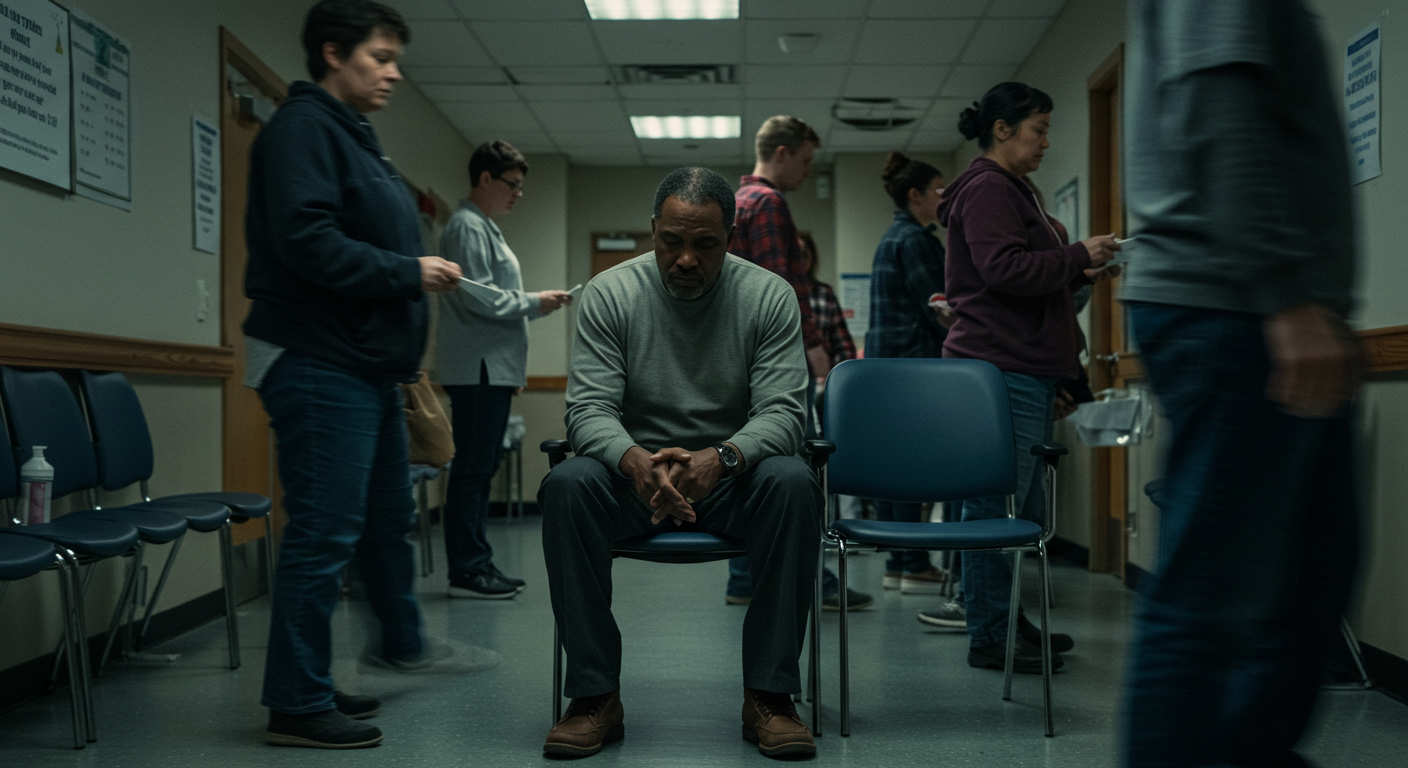Oregon has long struggled to provide adequate mental health care to its residents, and current administrative rules governing Managed Care Organizations (MCOs) and Coordinated Care Organizations (CCOs) exacerbate the problem. Specifically, Oregon Administrative Rule 410-141-3515(14)(d)(C) requires that "Routine behavioral health care for non-priority populations: Assessment within seven days of the request, with a second appointment occurring as clinically appropriate." While this rule sounds promising on paper, its implementation exposes a glaring loophole that undermines the intent of timely access to care.
Misinterpretation of "Assessment"
Across the state, a few Community Mental Health Programs (CMHPs) have reportedly been found to misinterpret or misapply the term "assessment" in this rule. Instead of conducting a comprehensive intake assessment with a qualified mental health provider, CMHPs often perform a brief screening to verify whether an Oregon Health Plan (OHP) member qualifies for services. This cursory interaction is not the thorough evaluation needed to initiate appropriate treatment.
After this superficial screening, individuals are frequently placed on waitlists for months before receiving an actual intake assessment. Following this, clients may wait additional weeks or months for their second appointment, perpetuating delays in the delivery of meaningful care. This systemic failure creates a facade of compliance while leaving vulnerable individuals without the timely intervention they urgently need. Services they could get from a provider outside the closed system, if they allow that option.
Research and Standard Practice
Emerging research and clinical guidelines emphasize the importance of weekly mental health services in the initial stages of treatment. Standard practice for many mental health conditions involves frequent sessions of individual or family therapy to establish rapport, provide psychoeducation, and begin therapeutic interventions. Delaying this critical early care not only undermines treatment efficacy but also places an unnecessary burden on individuals and families already in distress.
Current rules allow for determinations of “clinically appropriate” service frequency, which can result in delays that diverge from established industry standards of care. In some cases, subsequent sessions—such as the second, third, or fourth—may be scheduled more than a month apart, regardless of diagnosis. Questions arise regarding how these determinations are made and who is responsible for defining “clinical appropriateness.” Often, providers are required to adhere to these decisions, potentially normalizing practices that conflict with recommended care standards. It remains unclear whether responsibility lies with the Community Mental Health Program, Coordinated Care Organization (CCO), or other entities. This ambiguity raises potential liability concerns given that weekly sessions are standardized best practices and the divergence is not clinically supported.
The Impact on Mental Health Diagnoses
The consequences of these loopholes are profound, particularly for individuals with time-sensitive mental health diagnoses. Conditions such as major depressive disorder, anxiety disorders, post-traumatic stress disorder (PTSD), and early psychosis require timely and consistent intervention to prevent deterioration. Delayed care can lead to:
Exacerbation of symptoms: Untreated mental health conditions can worsen over time, leading to increased distress, functional impairment, and even crises such as suicidal ideation or hospitalization.
Higher long-term costs: Delayed intervention often results in the need for more intensive and expensive care later, including inpatient treatment or emergency services.
Erosion of trust: Individuals seeking help may lose faith in the system, discouraging them from pursuing care in the future.
Legislative and Regulatory Solutions
To address this issue, Oregon’s legislature and the Oregon Health Authority (OHA) must act decisively to close the loophole in Rule 410-141-3515. Key recommendations include:
Clarify the Definition of "Assessment": The rule should explicitly require a comprehensive intake assessment conducted by a qualified mental health professional within seven days of the initial request for care. This will eliminate the ambiguity that allows CMHPs to substitute inadequate screenings.
Mandate Timely Follow-Up Care: Establish clear guidelines that require a second appointment to occur within a clinically appropriate time frame, defined as no more than two weeks following the initial assessment.
Enforce Accountability: Implement robust oversight mechanisms to ensure compliance by MCOs and CCOs. This includes regular audits, reporting requirements, and penalties for organizations that fail to meet access standards.
Expand Capacity: Invest in the mental health workforce and infrastructure to reduce wait times and ensure that timely access to care is feasible through a universal electronic referral tracking system.
A Model Example: CareOregon's Guidelines
One promising framework that Oregon can look to is the guidelines established by the CCO, CareOregon, for routine behavioral health care needs. CareOregon specifies the following timeline:
Intake/Assessment within 7 days of the request
Second appointment within 14 days of the request (or sooner if clinically indicated)
Appointments 3-5 within 48 days of the request for services
Appointments 2-5 as indicated above must be clinical vs administrative in nature
This model ensures a structured timeline that prioritizes clinical care over administrative delays, providing a roadmap for other CCOs and the state to follow. Importantly, it underscores the necessity of prompt and consistent engagement with qualified mental health providers, addressing both initial and ongoing treatment needs.
Adopting similar standards statewide would eliminate ambiguity, reduce wait times, and improve outcomes for individuals in need of mental health services. CareOregon’s approach demonstrates that meaningful change is possible with clear guidelines and accountability measures.
A Call to Action
Oregon’s mental health care system cannot afford to perpetuate a system that prioritizes appearances over outcomes. This loophole in the interpretation of "assessment" and “clinically appropriate” is emblematic of the larger challenges facing our state’s behavioral health infrastructure. By enacting these changes, we can move toward a system that provides genuine, timely, and effective care—a system that Oregonians deserve.
Use the link to communicate to the Policy Board of OHA your position. Choose your local CCO and let them hear your voice.
https://www.oregon.gov/oha/OHPB/Pages/cco-feedback-survey.aspx
Lets get OHA to focus on what matters.


